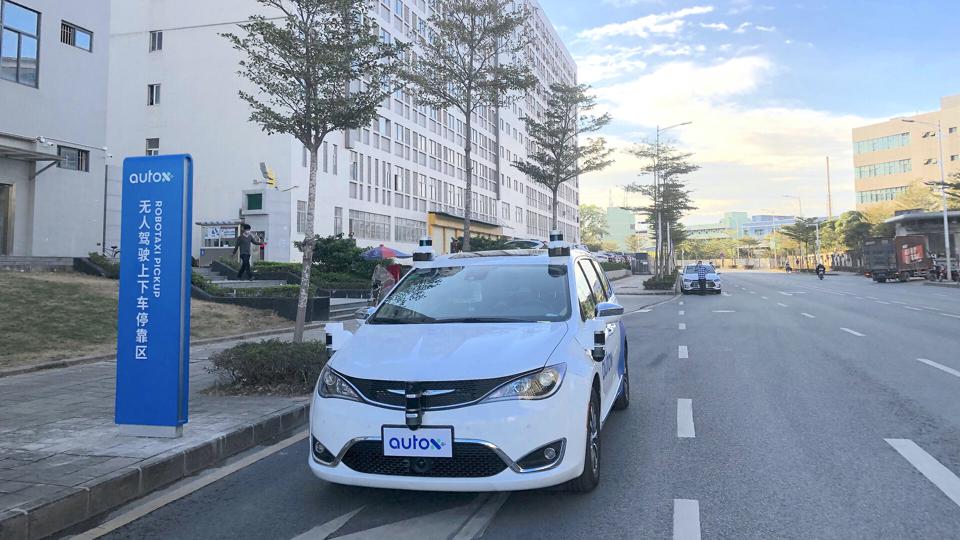
The unmanned robotic taxi AutoX stops at the boarding point, there is no driver in the car for safety reasons.
AutoX, a Chinese self-driving car startup funded by Alibaba and others, announced that rides in its robotic taxi without safety drivers will now be available publicly in Shenzhen.
In the fall of last year, the company conducted test trips, in which the passengers were mostly employees. The company is following Waymo, which also launched its service last fall, although Waymo has been providing services to a limited number of users through a test program for the previous two years.
AutoX is also working to launch a robotic taxi in Shanghai, but there are safety drivers in the cars. AutoX vehicles have been tested at the Chinese government self-driving test center in Shenzhen and are now approved for full-fledged operation as a robotic taxi. Taxis are called using the application; either a regular car with a driver or a robotic taxi can come to order. At the moment it is not known whether users can force a robotaxi or whether cars are assigned depending on their availability and the route chosen by the client.
AutoX is also licensed to conduct driverless safety testing in California, but the service has not yet been rolled out there. Test participants can register through the AutoX web page , although it is not yet known what their experience was or how many trips they might have taken. Passengers will be able to contact AutoX support agents, and travel will be monitored at a remote operations center in Shenzhen.
The demo video details the features of the vehicle and shows rides in the Pacifica minivan, the same vehicle that Waymo uses as the primary vehicle for its services. The drive shown as an example predominantly takes place along fairly clear and open streets, although sometimes unusual situations arise. Details of the mileage and any numbers were not disclosed.
The machines operate in the Pingshan District, a quiet suburb of Shenzhen. Given its location in China, it is more built-up than Chandler, Arizona, where Waymo operates, although in the context of testing they appear to be similar. Pingshan has become a platform for the development and testing of other self-driving vehicle projects.
Until we see the numbers from AutoX, we won't be able to judge their design easily, but the sheer audacity of allowing the general public to drive self-driving cars without a safety driver says a lot about the internal level of confidence in AutoX and government regulators. AutoX is the second company that has succeeded.
AutoX was founded in 2016 by Jianxiong Xiao of MIT / Princeton, known as "Professor X".
In other news, another Chinese company, Baidu, has announced that it has received permission to test self-driving cars in California. Several companies (including AutoX) have these permissions, but with the exception of Nuro, no one has seriously dealt with them.

, , , - .
, , , .
, , . , , , , , .
, , .
, , , .
, , . , , , , , .
, , .
- -
- -
-
automotive . 2500 , 650 .
, , . ( 30, ), -, -, - (DSP-) .
, . , , , . , automotive. , , .
, , . ( 30, ), -, -, - (DSP-) .
, . , , , . , automotive. , , .